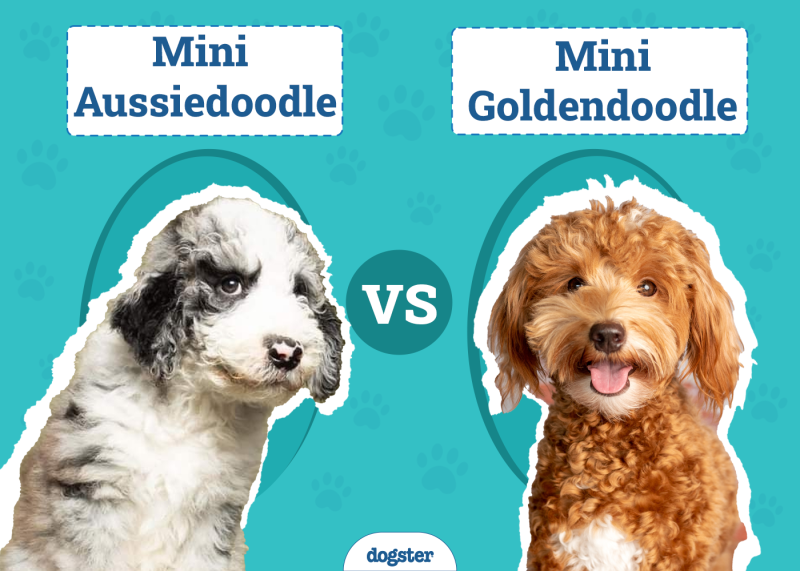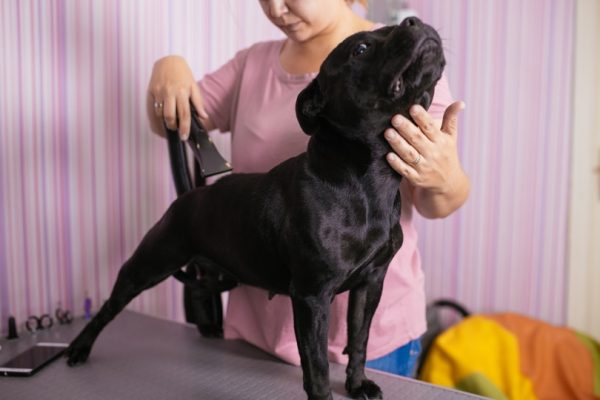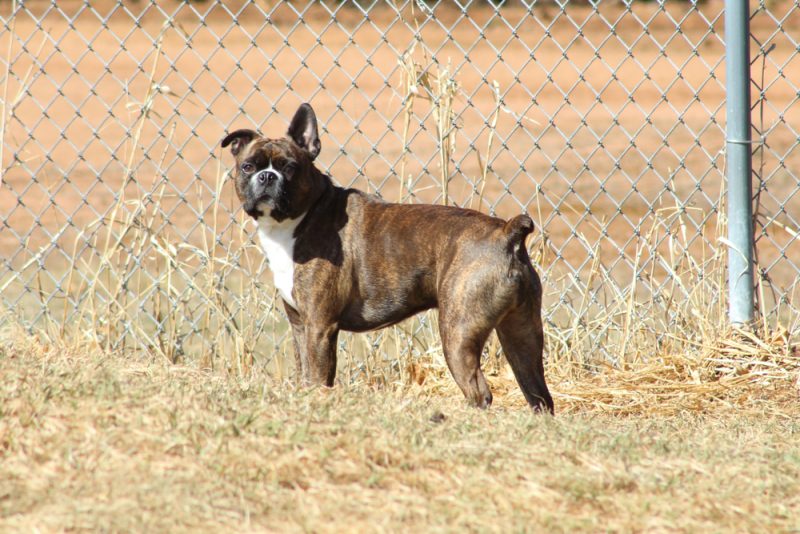Many people are hesitant and wary to vaccinate their dogs because they are worried about vaccine reactions. When people think of vaccine reactions, many assume the worst in that their dogs will develop a debilitating disease or just immediately pass away. Luckily vaccine reactions are rare in our pet dogs as vaccines have been studied, created, and improved over years and years of research. However, as with anything that goes in or onto your dog’s body, reactions can still occur. Keep reading to learn more about vaccine reactions in dogs, what to look for, and what to do if you think your dog is having a reaction.

What Is a Vaccine Reaction?
In dogs, when a veterinarian refers to a “vaccine reaction”, they are referring to an adverse effect the vaccine has caused to your dog’s body. These reactions occur because your dog’s immune system is doing its job. In other words, your dog’s immune system is responding by launching a response in the body, though sometimes this can go into overdrive.
Most commonly in dogs we are going to see mild reactions that will only last for a few hours. Vaccine reactions may occur immediately (within minutes) or hours to, rarely, a few days later. Dogs do not tend to develop long-term vaccine reactions that we can sometimes see in cats or people. Contrary to conspiracy theories in people, vaccines do not cause long-term effects such as autism, stunted growth, developmental disorders, or behavioral issues in dogs.

What Are the Signs of a Vaccine Reaction in Dogs?
There are different types of vaccine reactions. What most people think of is actually very rare, which is an anaphylactic reaction. Anaphylaxis typically occurs within minutes of receiving a vaccine. Anaphylaxis typically causes collapse, vomiting, pale gums, heavy breathing, diarrhea and then swelling/redness of the body.
More commonly in dogs we will see vaccine reactions occur within minutes to hours later. Commonly we will see hives, redness, itching, and mild swelling. Sometimes there will be tenderness at the vaccine site and a mild fever associated with inflammation (not infectious in nature). The hives and redness may just be around the vaccine site, or affecting the entire body. It’s not uncommon for a dog to get a puffy face, even if the vaccine was given in the back leg. If a mild fever is seen, your dog may experience mild lethargy, or the body temperature is found to be slightly elevated with a thermometer. It’s an old wives’ tale that a fever has anything to do with how your dog’s nose feels (e.g., wet, dry, cold, warm).
If your dog had an oral or intranasal vaccine, you may notice mild sneezing, coughing, reverse sneezing, rubbing the face, and/or mild gagging. Typically, these will resolve within a few minutes to hours after getting the vaccine.
What Are the Causes of a Vaccine Reaction?
Most commonly, vaccine reactions occur because your dog’s body is mounting an overzealous immune response to the vaccine. The immune system may cause inflammation, leading to a mild fever and lethargy. Other times components in the vaccines may cause a mild allergic reaction to occur. This is when we may see the puffiness, redness, hives, and/or swelling over the body.
The actual injection itself can also cause mild inflammation, swelling, and irritation at the injection site. Just as you may get redness and bruising after you have blood drawn, your dog’s body can react the same way from a needle poke. This can be made worse by a dog who is excited, anxious, and/or difficult to handle at the veterinarian as excess movement may cause the injection to be more traumatic

How Do I Care for a Dog With a Vaccine Reaction?
First, if you leave the hospital with your dog or puppy breathing fast after vaccination and/or they vomit, collapse, become acutely lethargic, and/or non-responsive, you need to immediately bring them back to the hospital. Anaphylactic reactions, while rare, can be deadly. They can cause a dangerous drop in blood pressure, poor circulation, and generalized inflammation. Immediate care with fluids and aggressive medications may be needed to stabilize your pet. If caught and treated immediately, dogs tend to do well.
If your dog develops mild signs – such as injection site swelling, soreness, hives, itching, and/or a mild puffy face – then contact a veterinarian. A veterinarian may just have you administer an antihistamine by mouth at home, dosed based on your dog’s weight. The veterinarian may also want you to come back with your dog to the hospital so that they can give injectable antihistamines and/or steroids.
Never administer Aspirin, Ibuprofen, or any other OTC products to your dog unless specifically directed by a veterinarian. While the veterinarian may want you to give an antihistamine, any OTC pain and anti-inflammatory products may be harmful to your dog. Always consult with a veterinarian’s office first to determine a plan that is right for your pup.
Did you know you can speak to a veterinarian without having to travel? Just head over to PangoVet. It's our online service where you can talk to a vet online and get the advice you need for your pet — all at an affordable price!


Frequently Asked Questions (FAQ)
My Dog Had a Vaccine Reaction Once, Will it Occur Again?
Not necessarily. Your dog may have the same vaccines for years, and then suddenly develop a reaction. Or, vice versa. Your dog may have a history of reactions, and then do fine. Most veterinarians will do pre-medications with Diphenhydramine +/- steroids if a dog has a history of a vaccine reaction in the past.
Can I Split up Vaccines to Decrease Reaction Rates?
Some owners and veterinarians prefer to split up the dates that they administer vaccines, especially in small dogs and/or dogs who have had reactions in the past. The hope is that by separating vaccines by a few days or even a few weeks, the body won’t be overwhelmed with mounting a response to multiple vaccines at the same time. This is a completely acceptable practice as long as you and the veterinarian are still following appropriate guidelines to keep your dog protected and safe.
Why Do I Need to Have My Dog Vaccinated?
This is a subject for an entirely different article. But the short answer is that many of our vaccines are lifesavers, and can prevent fatal disease. Rabies when contracted is 100% fatal. A vaccine is much safer than your dog getting bit by a bat or a stray or wild rabid animal. Vaccines against parvovirus and distemper also help to prevent these diseases which at minimum will cause significant health problems and are also frequently fatal. Vaccine recommendations have been revamped over the years and we now know our dogs do not need to be vaccinated for certain things yearly, decreasing the chance of reaction. Speak with a veterinarian about appropriate time tables based on your dogs’ age and lifestyle.


Conclusion
Vaccine reactions can manifest in many ways in our dogs, but most frequently they will be mild and self-limiting. Most commonly we will see an over-active immune response to a vaccine cause redness, hives, swelling, or even a low-grade fever. Soreness and swelling at the injection site are common, especially if your dog is rambunctious at the vet. Anaphylactic reactions, the most severe kind of vaccine reaction, is rare. However, if this occurs, your dog should be seen immediately by a veterinarian for care.
Vaccines help to prevent many fatal diseases, and are recommended in all of our pet dogs. However, the exact timetable and recommended vaccines should be discussed with a veterinarian to determine what is best for your pup. Treating mild vaccine reactions with OTC antihistamines may be appropriate, and many dogs will even be pre-treated if they have had reactions in the past.
Our vaccines and recommended protocols have made significant strides over the years. I encourage you to speak with a veterinarian about the best, most up to date and educated research into what is best for your dog rather than reading about rare horror stories on the internet. Vaccines truly do save lives and the risk of reactions is better than a certain death by disease.
Featured Image Credit: Lucky Business, Shutterstock


















